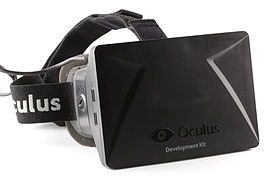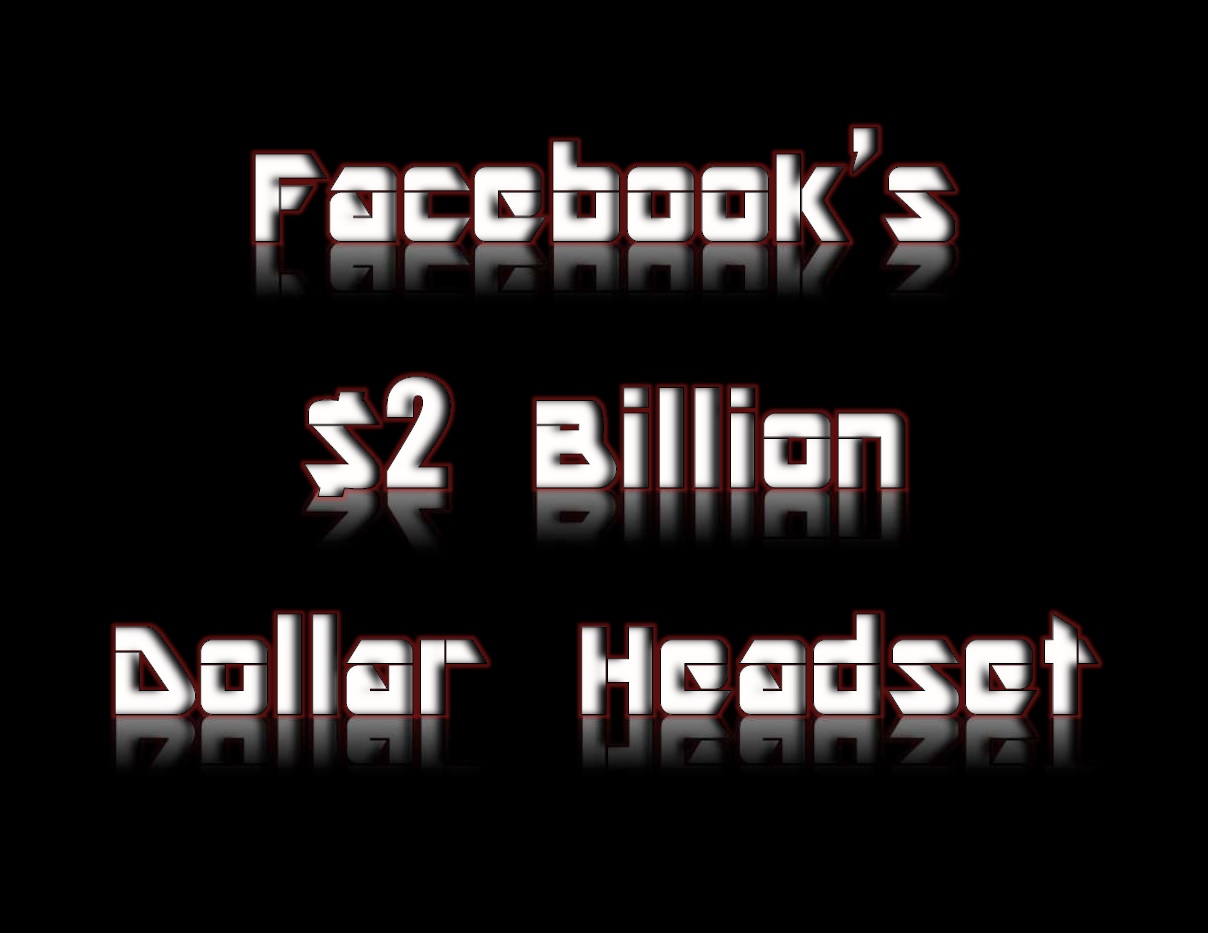
Sony has indeed been working on a Virtual Reality headset for the PS4. Titled Project Morpheus, I’m guessing a reference to the Matrix character of the same name, the new hardware was unveiled at this years Game Developers Conference or GDC. Amongst excitement for the announcement of this new hardware there have been several stories related to virtual reality unfolding in recent weeks.
First and foremost the acquisition of what logically would be the biggest competitor of Project Morpheus, the Oculus Rift was bought by Facebook for 2 billion dollars. A very impressive feat considering the Oculus Rift began inception as a kickstarter campaign. However pillars within the gaming community haven’t been so enthralled. The fear that this hardware with unknown potential to revolutionize gaming as we know it will now instead be reduced to a tool for collecting consumer information on people under the guise of “social networking” is very real.

The creator of the popular sandbox game Minecraft, Markus “Notch” Persson immediately cancelled development on a version of Minecraft for the Oculus Rift as soon as the deal with Facebook went through. Notch was quoted on twitter as saying “I just cancelled the deal. Facebook creeps me out.” Many others in the gaming community have expressed similar concerns. Most of the people who have already received development kits for the Oculus Rift are PC developers/enthusiasts who intended the device for gaming experiences.
Adam Sessler of Rev3Games made some good points on the future of virtual reality gaming as a whole. He said developing software specifically for hardware like the Oculus Rift will be expensive, especially early on while developers learn how the hardware works. The other thing to consider is at this moment both the Oculus Rift and Sony’s Project Morpheus are not available to public consumers. The starting price point of such hardware is as of now unknown and the relative number of people who can afford, let alone want a virtual reality headset is unknown. With all of that in mind it must be understood that developing full-fledged AAA titles for a virtual reality headset could still be many years down the line if ever.
For companies to even consider developing a full-fledged title to utilize virtual reality hardware the install base will have to be pretty high. Otherwise the effort simply isn’t cost effective. Instead Adam Sessler suggested that we should adjust our expectations of what virtual reality as a whole will be. It is more likely we will see applications made by smaller development teams with the goal of emphasizing different experiences, like exploration or something like skydiving. There is also interest in virtual reality for aid in scientific and medical research as well.
Palmer Luckey the creator of the Oculus Rift assures fans that Facebook was the best choice for purchasing the rights to his hardware. Stating that if he had sold to Apple or Microsoft they would have gutted his company and used whatever parts they saw fit to appease their own agendas. Luckey says that Facebook has promised to leave his team intact and allow them the freedom they need to develop the Oculus Rift appropriately for consumers.
Be it Facebook’s Oculus Rift or Sony’s Project Morpheus it seems the age of virtual reality is upon us. The applications for gaming and otherwise seem quite promising. YouTube is already full of people who have modified current games to work on virtual reality hardware. To reference Morpheus from the first Matrix movie we will have to see if people take the blue pill and “wake up as if nothing has happened” or “take the red pill and see how far the rabbit hole goes.”
-Z3R0TH3RT33N
Follow Sonic Mercury on Twitter @SonicMercury and like our Facebook page Sonic Mercury

